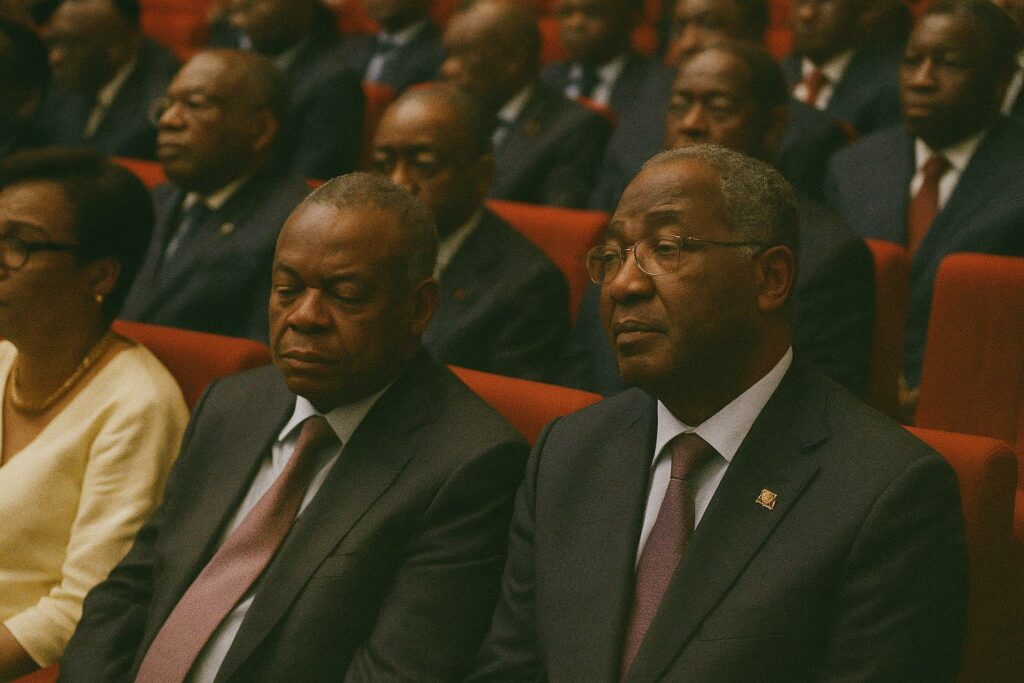Economic Francophonie Summit Arrives in Brazzaville
In late June 2025 the Grand Hôtel de Kintélé, an ultra-modern complex on the outskirts of Brazzaville, will be converted into a laboratory of francophone capitalism. More than 2 800 delegates, representing 73 French-speaking economies and a consumer pool now estimated at 320 million people, are expected to converge on the Congolese capital for the fifth Rencontre des entreprises francophones. The event, held under the patronage of President Denis Sassou-Nguesso, is marketed as “more comfortable, more accessible, more inspiring”—a superlative-laden promise that underscores both ambition and anxiety in equal measure.
Congo’s Soft-Power Calculus and Infrastructure Showcase
For Brazzaville, the summit is a calibrated soft-power exercise. Hosting privileges allow the Congo to project an image of stability and modernity after successive oil-price shocks and pandemic-induced contractions. The Kintélé complex—with its six-lane expressway, conference theatre and riverside vistas—acts as a bricks-and-mortar rebuttal to international headlines on debt distress (International Monetary Fund, 2024). By physically situating the forum twenty minutes from the city centre, authorities hope to spare delegates the capital’s chronic congestion and unreliable utilities, thereby polishing investment perceptions without rewriting structural realities.
From Linguistic Affinity to Tangible Supply Chains
Linguistic proximity has historically fostered regulatory mimicry, but turning shared vocabulary into shared value chains remains elusive. Intra-francophone trade represents barely 19 percent of overall commerce among member states, according to the Organisation internationale de la Francophonie (2024). Summit organisers therefore promise matchmaking sessions focused on agritech, renewable energies and digital services—sectors where tariff harmonisation and mutual recognition of standards could produce quick wins. Canadian fintech firms and Moroccan solar developers, for instance, will explore partnerships with Central African distributors seeking to leapfrog inadequate banking networks and fragile grids.
Governance, Sustainability and the Credibility Gap
The rhetorical pivot toward “shared growth” inevitably invites scrutiny of governance benchmarks. Congo ranks 164th out of 180 on Transparency International’s corruption index, while its forest-rich hinterland sits at the centre of sensitive carbon-credit negotiations (World Bank, 2024). European development banks have already signalled that any memoranda emerging from Brazzaville must integrate deforestation safeguards and gender-inclusive hiring clauses. Civil-society representatives, though few on official panels, warn that without enforceable monitoring the summit risks becoming an exercise in reputational laundering rather than export diversification.
Quiet Trade Diplomacy Behind Closed Doors
Beyond plenary sessions and photo opportunities, a discreet ballet of bilateral meetings is scheduled. Paris will lobby for francophone alignment on digital-service taxation ahead of OECD talks, while Dakar seeks concessional financing for a cross-Atlantic fibre-optic corridor that would reduce dependency on Anglophone hubs. Meanwhile, Vietnamese envoys—benefiting from observer status—plan to probe Central African timber concessions, illustrating the increasingly porous edges of the francophone economic space. According to one senior OIF official, the objective is “to translate cultural comfort into contractual comfort”—a formulation that captures both the promise and peril of the initiative.
Implementation: The Acid Test After the Applause
The summit’s final communiqué is expected to outline a three-year roadmap with sectoral targets and a blended-finance mechanism administered by the African Development Bank (2023). Yet previous editions have struggled with follow-through: less than 40 percent of announced projects from the 2021 edition in Paris reached financial close, largely because of foreign-exchange volatility and legal uncertainties. Organisers insist that the Brazzaville gathering will adopt a quarterly reporting dashboard, but investors will look for concrete escrow arrangements and independent audit trails before committing capital.
Prospects for a Cohesive Francophone Business Community
Should the Kintélé experiment succeed, it could reposition the francophone bloc as a credible counterweight to Commonwealth and Lusophone commercial networks, especially in the contest for Africa’s projected USD 3 trillion single market by 2030. If it fails, the narrative may shift toward linguistic nostalgia outpaced by geoeconomic realpolitik. The stakes are therefore as political as they are commercial, and the Brazzaville summit will serve as a barometer of whether shared language can still mobilise shared prosperity in an era increasingly defined by data flows, green value chains and multipolar rivalry.

